A Fed rate rise is a big deal, just not for ordinary Americans
- Published
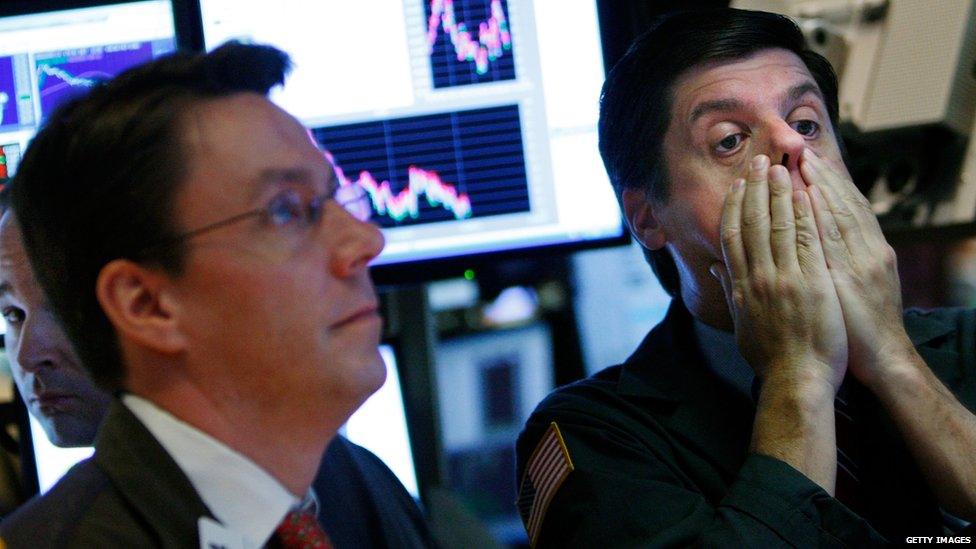
Wall Street may worry if the Fed raises rates, but most of us don't need to
The US Federal Reserve has raised interest rates for the first time in nine years - a decision that some are calling risky and others are calling necessary.
Since 2006, the US central bank has kept its benchmark rate, which is used to set the interest rates for other loans - including mortgages, car loans and credit cards - close to zero.
Investors have recoiled at the idea of a Fed interest rate rise, sending Wall Street stocks sliding every time officials have hinted at the prospect.
So with all of this anxiety and concern, how worried should individuals be?
Relax
If the Fed does raise rates, they are only likely to increase from 0.25% to 0.5%, a pretty moderate change.
The markets have also been warned well in advance of the increase. Fed chair Janet Yellen has repeatedly said she planned to raise rates this year, while the US economy has become steadily stronger, a sign it can handle a rate rise.
And some of the impact has already been absorbed: banks have already taken steps to price this increase into some loans, so we are unlikely to see any shock moves in lending rates, or indeed savings rates on deposits.
"The bottom line is, savers won't be too happy and borrowers won't be too hurt," says JP Morgan Chase chief economist, Anthony Chan.
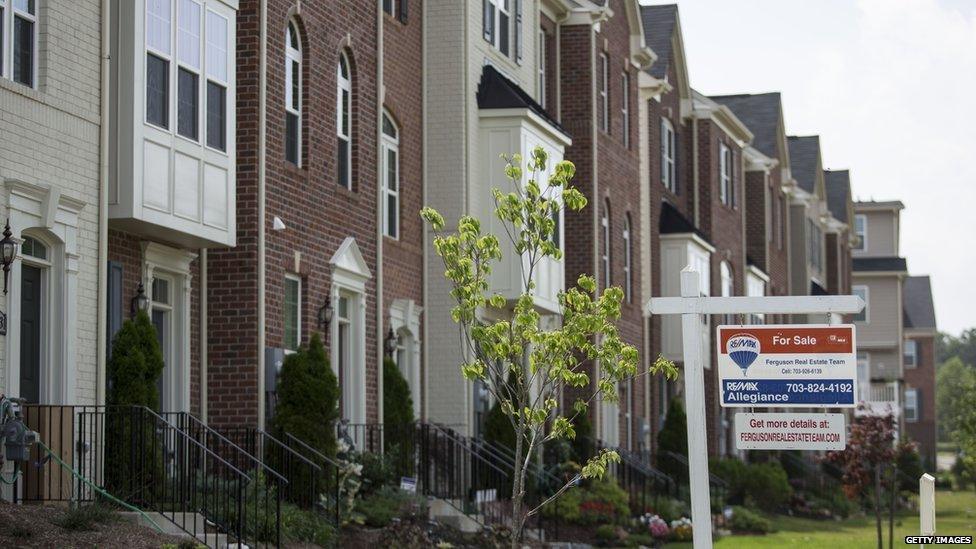
In 2015, home sales in the US reached their highest level since the financial crisis
Homebuyers
Prospective homebuyers can happily join this little-affected group.
Concerns about the Fed's impact on mortgage rates are mostly misplaced, suggests Mr Chan.
Home loans in the US are typically tied to the price of 10-year treasury bonds. These bonds will be affected by the rate decision, but it will take time before there's any impact on mortgages. And for now, the change is likely to be modest.
Even once any Fed move has sunk in, mortgage rates are only expected to go up from about 3.9% to 4.2% by the end of 2016.
"If you were thinking of buying a house two or three years down the line, you aren't going to move it [forward] for low rates now," says Brian Block, managing broker at estate agent's RE/MAX Allegiance in Alexandria, Virginia, a suburb of Washington DC.
"There are so many factors that go into a purchase - a raise at work, having a family - the interest rate only factors a little."
In the longer run, higher mortgage rates - if they help cool down the overheated housing market - could benefit first-time buyers trying to find an affordable property.
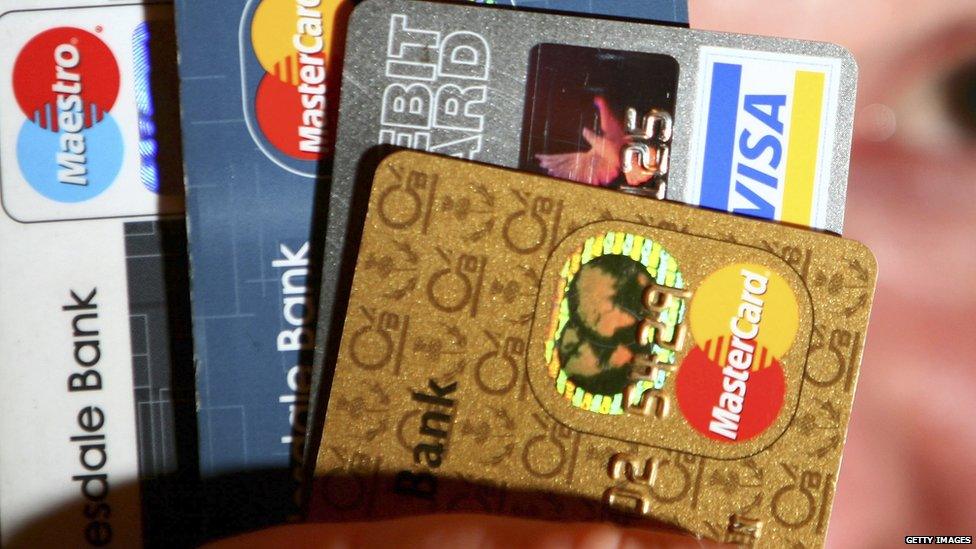
The average indebted American household has more than $7,000 (£4,681) in credit card debt
Credit card borrowers
Credit card debt is an area of concern. The average indebted American household has more than $7,000 (£4,681) in credit card debt, according to the website Card Hub, external.
Many low-income Americans rely on credit cards to cover everyday expenses. For most, the Fed's decision on Wednesday will have little immediate impact. Consumer advocates do worry, though, that if borrowing rates move steadily upwards, it may eventually become even harder for this segment of the population to pay its bills.
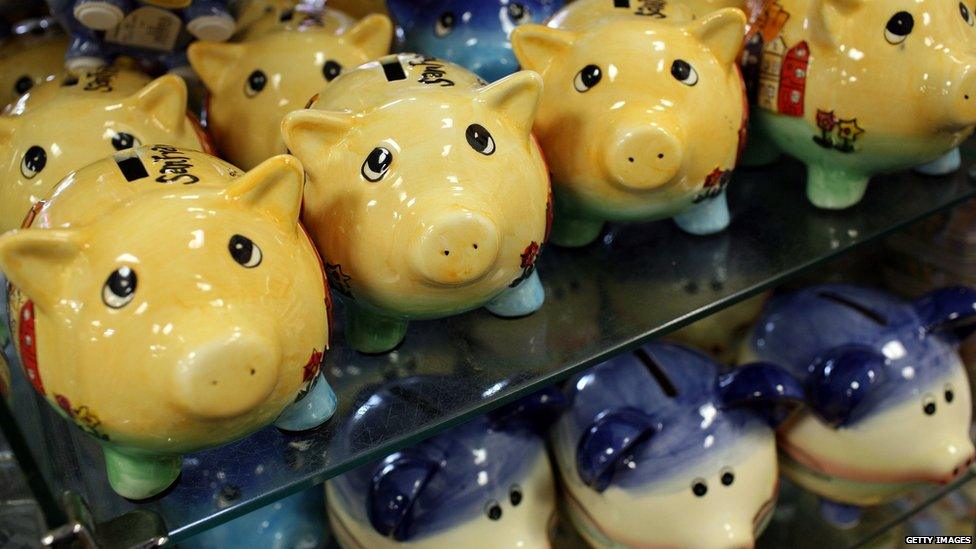
Interest on savings accounts will take a long time to go up
Savers
Savers are typically seen as the winners when interest rates rise, but in reality, the benefits for them will be limited.
"Unfortunately, research has shown that banks don't move as quickly to raise rates on deposits as they do to raise them on loans," says Cameron Huddleston, life and money columnist for personal finance website gobankingrates.com.
Americans are already poor savers. According to a gobankingrates.com study, 62% of Americas had $1,000 or less in a savings account. These types of accounts - for short-term savings goals such as vacations, holiday shopping or rainy-day funds - are often highlighted as the beneficiaries of interest rate hikes.
However, Ms Huddleston is sceptical that the small increase will change Americans' minds about saving. "For those people who aren't saving a lot already, I don't think a slightly higher saving rate is going to change their attitudes," she says.
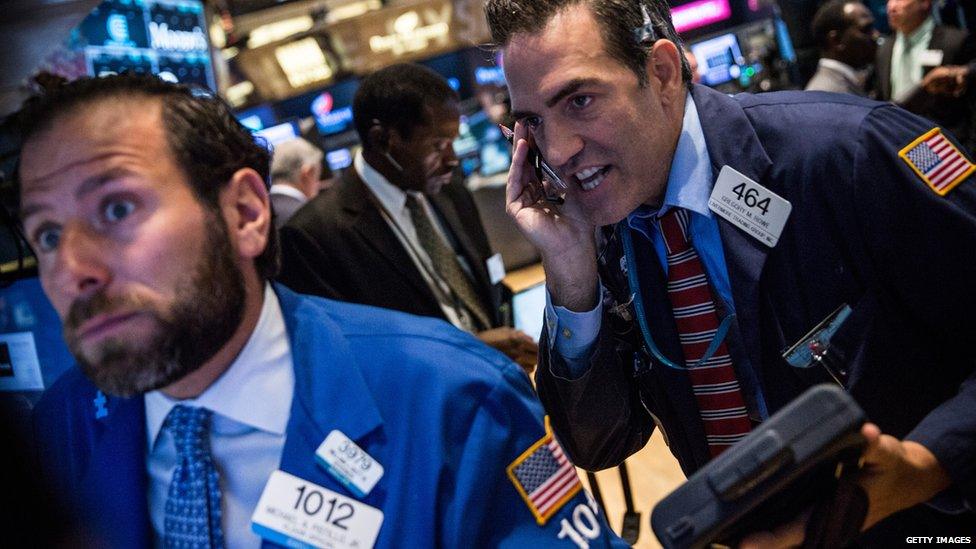
Markets have fluctuated after every Federal Reserve meeting
Businesses
Like individuals, businesses are unlikely to feel much immediate impact from the Fed's rate increase.
Loans will gradually get more expensive if rates continue to rise, but the US economy has been growing, making higher borrowing costs more affordable.
More important for most enterprises' prospects is consumer confidence. As long as that holds up, Americans will continue to spend even after the holiday season is over.
Some exporters do worry, though, that a stronger dollar will cause their goods to be more expensive overseas. The dollar is already strong and a rate rise will bolster it further. So exporters will be keeping a beady eye on exchange rates in coming weeks.
Investors
Wall Street may still decide to throw a tantrum, if and when there is a change in rates. But they can't say they weren't warned.
Previous indications by Ms Yellen that the bank would raise rates have sent stocks sliding. But Mr Chan points out that in the longer run, stocks tend to rise in value in the year or two after a Fed rate increase. If there are market wobbles, that will be a comforting thought for anyone with big shareholdings or a retirement account.

Ordinary Americans may only feel the impact of a rate rise down the road
New direction
The bottom line is, while economists would see a rate increase as a major change in monetary policy, it's unlikely to have an impact on your wallet for now. That doesn't mean it isn't important.
According to Mr Chan, the Fed's actions are precautionary, in order to protect against inflation.
"The Fed is moving to put in smoke alarms, to be sure there is no fire in the form of inflation as the economy grows," he says.
Moreover, a decision to raise rates would show the US central bank is ready to embark on a new path after a decade, following the same course.
That would mean that in the long run, Americans will need to accustom themselves to the idea of higher mortgage, credit card and savings rates. How high and how soon is another matter.
- Published3 December 2015
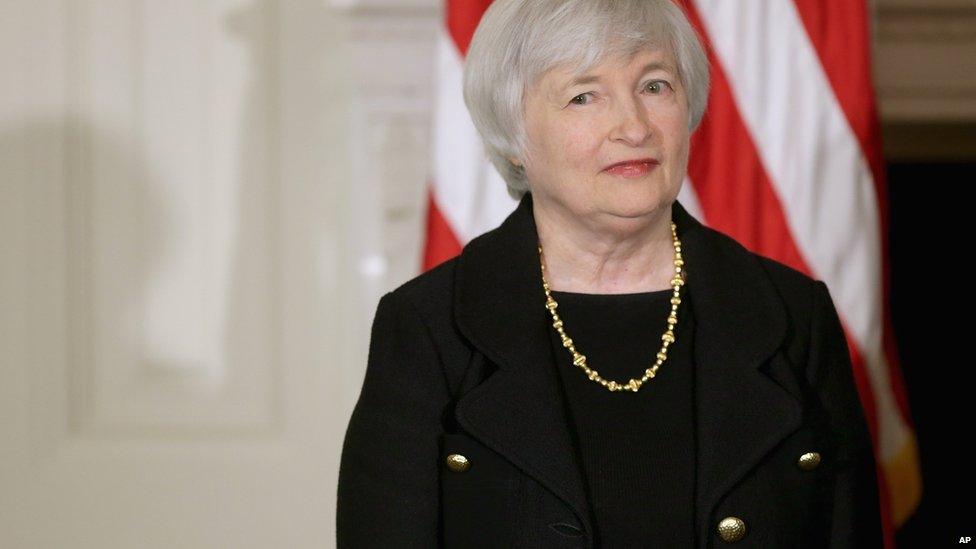
- Published28 August 2015